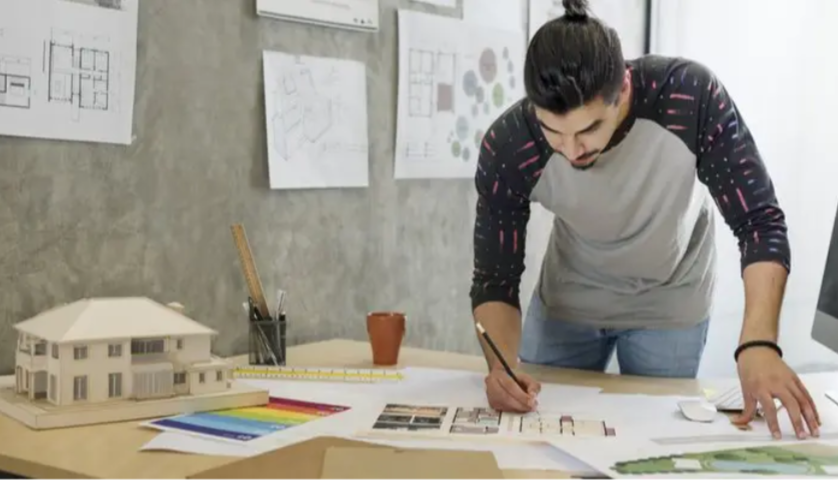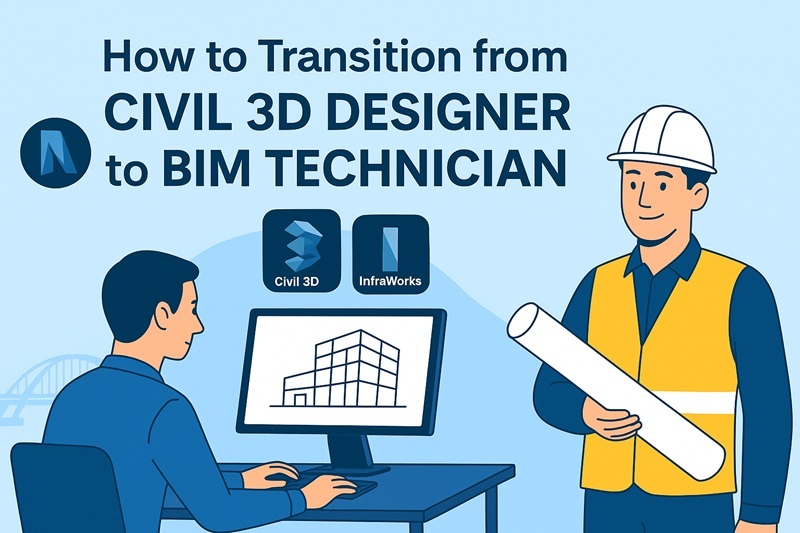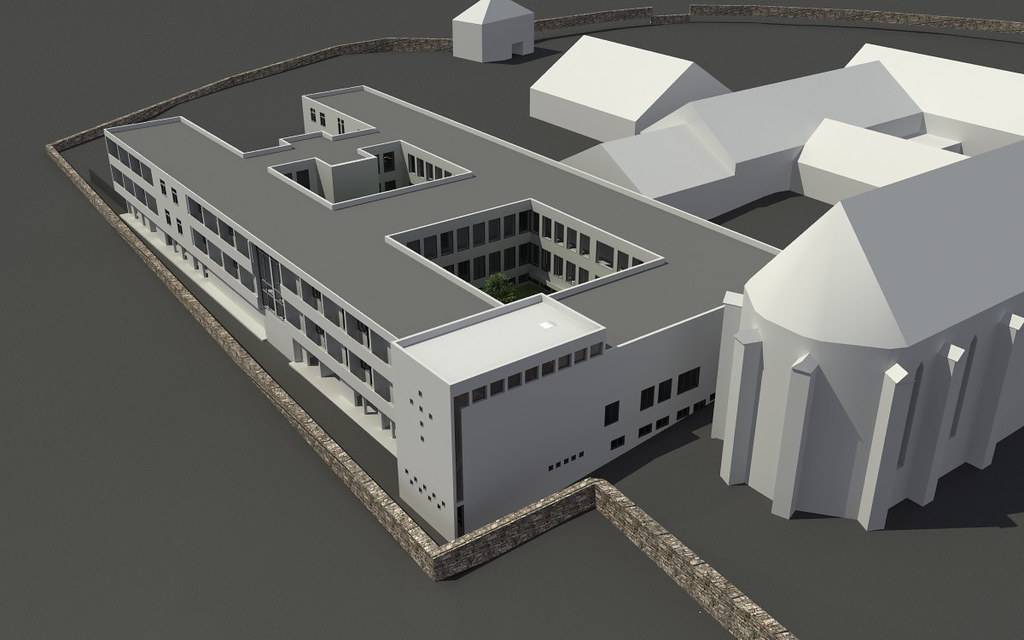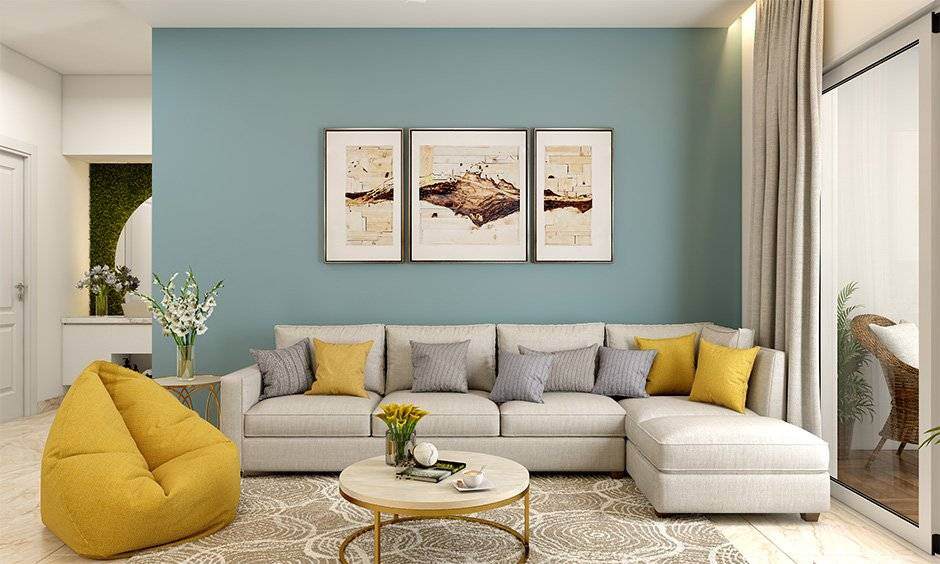
"The essence of interior design will always be about people and how they live,” said the American interior designer Albert Hadley. Expanding on his idea, spatial design at large — inclusive of urban design, architecture, and interior design — is all about the people. It is the comfort, happiness, and health of people within a space that determine what good interior design is! So, let’s further explore the concept of interior design and the roadmap to a successful career in this field.
What is Interior Design?

Interior designing is the process of enhancing indoor spaces to achieve a healthier and more aesthetically pleasing environment. It involves creating functional and visually appealing places by integrating elements such as colour, furniture, lighting, and layout. The intent is to balance form and function, considering both the practical needs and the personal tastes of clients. The architectural features of a room, spatial constraints, and the intended use of the space are also taken into consideration.
Understanding the Role of an Interior Designer

Interior designing is the art of curating spaces that serve a purpose for the user. Therefore, interior design jobs are highly people-centric and based on the intangibles of emotions. Let’s take a deeper dive into the details of interior design services.
1. Who is an Interior Designer?
An interior designer is a professional who specialises in creating and enhancing interior spaces to improve their functionality and aesthetic appeal. They work with clients to understand their needs, preferences, and lifestyle, then develop design concepts that reflect those desires while adhering to safety codes and regulations. Interior designers are skilled in selecting materials, furnishings, and colour schemes, and often collaborate with architects, contractors, and other specialists to bring their vision to life.
2. What do Interior Designers Do?
Some of the most popular services offered by interior designers include house interior design, kitchen interior design, bedroom interior design, office interior design, modern home interior design, modern house interior design, and maximalist interior design.
Further, their scope of work and key responsibilities include the following:
- Meeting with clients to understand their needs, preferences, budget, and project goals.
- Developing floor plans and layouts to optimise space functionality and flow.
- Selecting and sourcing furniture, fixtures, textiles, and finishes that align with the design concept.
- Developing and managing project budgets, ensuring costs are kept within the client’s financial limits.
- Working with contractors, architects, and other professionals to ensure design plans are executed correctly.
- Overseeing project management from inception to completion, ensuring timely and within-budget delivery.
- Ensuring that designs meet all relevant safety regulations and building codes.
3. Interior Designer Salary in India
At the entry-level, interior designers in India typically earn between ₹3,00,000 and ₹5,00,000 per annum. This range generally applies to recent graduates or those with less than 2 years of experience.
For those with 3 to 7 years of experience, the average interior designer salary ranges from ₹6,00,000 to ₹10,00,000 per annum. This level usually includes professionals who have built a solid portfolio and established client relationships.
Senior interior designers with over 8 years of experience can expect to earn between ₹12,00,000 and ₹20,00,000 or more per annum. This often includes individuals in managerial roles, those with specialised expertise, or professionals who have gained significant industry recognition.
Which Skills Are Needed to be an Interior Designer?

To successfully land interior design jobs, candidates must be proficient in technical knowledge of the subject, software, and people skills. Below is a list of skills that interior designers must possess to unlock the answer to how to become an interior designer.
1. Technical Skills
- Mastery of design software such as Revit, SketchUp, 3DsMax, Lumion, and ArchiCAD is crucial for creating detailed plans, 3D models, and visual presentations.
- The ability to effectively plan and optimise the use of space, including layout design and furniture arrangement, is fundamental to creating functional environments.
- Understanding and applying local building codes and regulations to ensure designs are compliant with safety and legal standards.
- Expertise in selecting and arranging lighting to enhance both the aesthetics and functionality of a space.
2. Analytical Skills
- Strong problem-solving abilities are essential for addressing design challenges and finding practical solutions that meet client needs and project constraints.
- Competence in managing budgets, including cost estimation and financial planning, to ensure projects are completed within financial limits.
- A keen eye for detail helps in identifying and correcting potential issues before they become major problems, ensuring high-quality results.
3. Creative Skills
- A strong sense of style and an understanding of colour theory, textures, and design trends enable interior designers to create visually appealing and cohesive spaces.
- The ability to think creatively and innovate allows designers to develop unique and personalised solutions that reflect the client’s vision and preferences.
- Staying current with design trends and incorporating them into projects helps in creating modern and relevant spaces.
How to Become an Interior Designer?

The master plan for becoming an interior designer lies in having a balance of both theoretical concepts and practical design hacks. For this purpose, it is essential that individuals sign up for a formal degree in interior design in combination with interior design courses online to develop a well-rounded professional persona. Below are the key qualification criteria that are fundamental for interior design services.
1. Essential Qualifications
To begin your journey as an interior designer, you’ll need to acquire foundational qualifications that will set you up for success in the field. A degree in interior design, architecture, or a related field is highly recommended. These programs typically cover essential aspects such as design principles, spatial planning, and materials science.
Additionally, strong skills in visual communication, including proficiency in drawing and design software, are crucial. Developing a solid portfolio that showcases your creativity and technical abilities is vital for attracting potential clients or employers. As the field is competitive, having a degree from a recognised institution can provide you with a significant advantage.
2. Certification Courses and Internships
Beyond formal education, obtaining interior design certifications can enhance your credentials and demonstrate your commitment to the profession. Pursuing relevant courses from platforms like Novatr can validate your expertise and help you stand out in the job market.
Internships are equally important as they provide hands-on experience and insight into the day-to-day responsibilities of an interior designer. Working with established design firms will allow you to work on real projects, learn industry best practices, and build professional connections. It will give you an opportunity to apply theoretical knowledge in a practical setting, gain feedback, and refine your skills.
Top Courses and Training to Become an Interior Designer
Signing up for interior design classes helps you stay current with the industry. It enables you to keep your designs relevant, which impacts your confidence in front of clients and your peers. Therefore, upskilling with online interior design courses is vital for professionals in this field.
1. BIM Professional Course by Novatr
The BIM Professional Course by Novatr is designed for professionals in the architecture and interior design industry. As one of the most sought-after interior design courses, it focuses on BIM from a designer's perspective. Students learn to create detailed 3D models, implement collaborative workflows, and improve project management via BIM tools. The course covers sustainable design practices, compliance with industry standards, and prepares participants for global opportunities in BIM-related roles in the field of interior design.
2. Interior Design Basics: Simple Steps to Your Perfect Space by Skillshare
You can obtain an interior design certificate online with this beginner-friendly course on Skillshare. The course curriculum introduces the fundamentals of interior design by covering essential topics such as colour theory, space planning, furniture selection, and creating mood boards. The course is project-based, allowing learners to apply what they’ve learned to create their own interior design projects. This is an excellent starting point for those new to the field and seeking entry-level interior design jobs.
3. How to Work with Interior Design Styles Like a Pro by Udemy
Offered on Udemy, this value-for-money interior design course helps learners understand various interior design styles and how to apply them in real-world projects. It covers popular styles such as modern, contemporary, traditional, and eclectic, providing practical tips for mixing and matching elements. The course includes video lectures, downloadable resources, and hands-on projects to enhance learning. It’s ideal for those looking to specialise in specific design aesthetics and gain a deeper understanding of style application.

4. Diploma Course in Interior Design by The Interior Design Institute
As one of the most comprehensive interior design courses, this program covers all aspects of interior design. The curriculum topics include design theory, space planning, lighting, colour, and furniture design. The course is delivered online, allowing students to learn at their own pace. It also includes mentorship from professional interior designers, providing personalised guidance and feedback. This diploma is well-suited for those seeking advanced education in interior design.
5. Basic Interior Design by New York School of Design
The Basic Interior Design (BID) program at the New York School of Interior Design is an introductory course that provides a solid grounding in interior design concepts. It covers fundamental topics such as drawing, colour, textiles, and the history of interior design. The program also includes practical exercises and projects to develop design skills. This course is ideal for beginners seeking interior design jobs and wanting to build a strong foundation for further study or a career in the field.
In Conclusion
Enrolling in interior design certification programs offers the opportunity to learn new skills, tools, and software. The advent of cutting-edge technologies such as Building Information Modelling (BIM), Artificial Intelligence (AI), Virtual Reality (VR), and Augmented Reality (AR) has further opened the gateway to diverse career paths. These tech-first niches can offer high-paying job roles as interior designers and bring international work opportunities to your doorstep.
So, if you want to secure future-relevant interior design jobs, we suggest you check out the BIM Professional Course for Architects and Interior Designers offered by Novatr. It is a unique program that imparts knowledge about BIM software, workflows, and processes to learners. As part of this course, interior designers can explore how to leverage BIM for their professional advantage and stand out amongst their peers in the industry. Novatr also provides placement assistance to its learners to help them secure their desired roles in top interior design firms.
Explore the course today and launch your career for success!
Check out our Resources page to learn about the latest trends and developments in the built environment.
Was this content helpful to you









